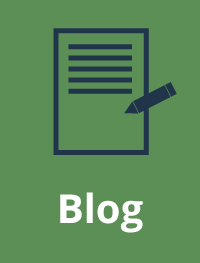While email is clearly an essential tool in business today, unscrupulous marketers have made it an annoyance by filling our inboxes with spam. In addition, well-meaning friends who aren’t as busy as we are send us bits of useless information, stale jokes and links to irrelevant articles. As a result, even though most of what we receive each day is welcome and important to our business, email has acquired a bad reputation.
At the same time, email has become a socially acceptable addiction. It’s something easy to do when you want to get away from something else—a tiresome project, or a difficult challenge. It appeals to the same psychological mechanism that draws us to the refrigerator, to smoking, to drinking or to surfing the Internet.
Email is so seductive because it holds the excitement of the unknown. Something interesting could be waiting—a message from someone you’ll be happy to hear from, even a problem that needs taking care of, but something that will surely distract you from whatever it is you should be doing.
Managing the avalanche of daily emails is the #1 complaint of office workers these days. If you’re working solo, you need to deal with email because there’s no one to delegate messages to—you’re it! Experts recommend the following techniques for controlling email:
Eliminate unnecessary emails.
Unsubscribe from newsletters, chat rooms and other ongoing communications that aren’t important or useful. Create filters for messages you don’t want to see and people you don’t want to hear from so those emails never reach your inbox at all. They will be diverted to your spam folder.
Remember, legitimate email you wouldn’t want to miss also occasionally lands in your spam folder. So check it every day or two to make sure something hasn’t been delivered there by mistake. Permanently delete the rest.
Never “check” email.
Instead, commit to “processing” email at designated times throughout the day, for a specific period of time. This approach calls for a completely different mindset. You are not just looking to see what is there; you will actually handle what is there.
For most people it’s sufficient to process email no more than three or four times a day. For example, if you decide to process email at 9 a.m., 12 noon and 4 p.m. you can spend the rest of the day doing useful work. Impose strict limits on how much time you spend on email while you have important projects waiting. Set a timer if you need to.
Use the following procedure to process emails:
1. Delete immediately all emails you reasonably can—for example, those from unknown persons and/or with subject lines you’re not interested in.
2. Open emails that look like they’re for information only and won’t require action. Read them quickly, take note of anything important, and archive them.
Yes, my suggestion is that you archive those messages you decide to keep instead of filing them. Like most saved material, you will probably never refer to 80 percent of them again, so don’t bother creating an elaborate filing system for emails you have read. The 20 percent you may wish to refer to in the future can be found by your email program’s search function.
Above all, avoid the temptation to print out emails just so you’ll be able to find them later in your files. Most email programs contain a search function that will find whatever you’re looking for, if and when you need it
3. Scan subject lines for high-priority messages and read them next. Answer immediately if you can do so in two minutes or less. If it will take longer, don’t get sidetracked creating lengthy responses. Move the email to a separate folder, enter a to-do in your planner and deal with complex issues at that time.
Stay tuned for more posts where I’ll give more tips to prevail over your email!
If you’d like more tips on Working from Home, sign up for our newsletter and receive a free report.







